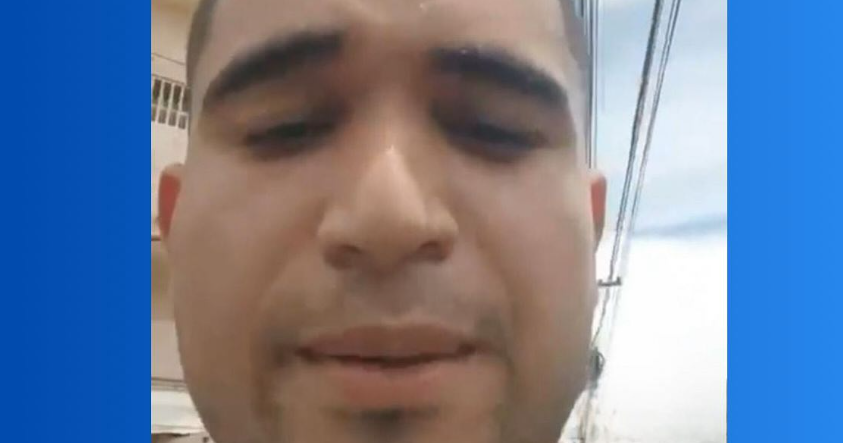In a startling incident that underscores the risks faced by social media influencers, Venezuelan police arrested an alleged accomplice in the murder of TikTok influencer Jesus Sarmiento. Sarmiento, who had garnered over 77,000 followers, was fatally shot during a livestream after denouncing members of the Tren de Aragua criminal gang and reportedly corrupt police officers. The arrest of Pierina Uribarri, tied to the alleged gunman, marks a critical development in ongoing investigations into this tragic case.
| Article Subheadings |
|---|
| 1) Murder During a Livestream |
| 2) Investigative Developments: Arrests and Charges |
| 3) The Context of Violence Against Influencers |
| 4) Government Denial of Gang Activities |
| 5) A Pattern of Violence: Global Trends |
Murder During a Livestream
On a fateful day in Venezuela, while broadcasting live to his audience, TikTok influencer Jesus Sarmiento met a tragic end. He was in the midst of engaging his followers when armed assailants gained access to the location he was broadcasting from and shot him. The final moments of his livestream were harrowing; viewers could hear disturbing sounds of a door being pounded on, along with a woman shouting for help. Following the chaos, Sarmiento is heard declaring, “They shot me, they shot me,” before the video abruptly cut off. The livestream, which aimed to tackle various societal issues, transformed into a grim spectacle highlighting the real-life dangers of speaking out against crime.
Investigative Developments: Arrests and Charges
Following the shocking murder, Venezuelan Attorney General Tarek William Saab took to Instagram to announce significant developments in the investigation. He revealed the arrest of Pierina Uribarri, alleged to be in connection with Adrian Romero, the suspected gunman. Uribarri faces grave charges including intentional homicide, criminal association, and terrorism. Additionally, authorities have issued warrants for the arrests of Romero and two other suspects: Wilbert Gonzalez and Gerald Nieto. These arrests signify a serious commitment from Venezuelan law enforcement to confront rising violence and make accountability a priority.
The Context of Violence Against Influencers
Sarmiento’s fate is reflective of a broader trend concerning the violence faced by social media influencers worldwide. In recent years, various influencers have been threatened, attacked, or murdered due to their content or opinions. Sarmiento was vocal in raising awareness about social issues, including exposing members of the Tren de Aragua gang and accusing police officers of corruption. The incident is not isolated; it raises alarms about the shifting risks that accompany the influencer lifestyle, particularly when it intersects with topics that draw the ire of organized crime. It seems that speaking out against perceived injustices can put influencers and their followers in perilous situations.
Government Denial of Gang Activities
In an intriguing turn of events following Sarmiento’s murder, the Venezuelan government has maintained that the Tren de Aragua gang—deemed a “terrorist” organization by the United States—has been dismantled. This denial raises questions about the veracity of government narratives versus the lived experiences of citizens and influencers like Sarmiento. Despite proclamations from authorities, individuals on the ground have provided a contrasting picture, suggesting a thriving criminal enterprise that threatens not only influencers but the public at large.
A Pattern of Violence: Global Trends
Sarmiento’s tragic death is emblematic of a growing global issue where social media figures are increasingly targeted. Recently, the case of Sana Yousaf, a 17-year-old TikTok star in Pakistan, who was shot dead by a man after repeated online attempts to contact her, further reflects these grim trends. Additionally, in May, 23-year-old Valeria Márquez was murdered during a livestream in Mexico, provoking outrage and highlighting the vulnerabilities of influencers in these challenging times. Authorities in various countries have wrestled with the pervasive nature of organized crime, grappling with the question of how best to protect those who use social media to express their viewpoints.
| No. | Key Points |
|---|---|
| 1 | TikTok influencer Jesus Sarmiento was murdered during a livestream after denouncing criminal and police corruption. |
| 2 | |
| 3 | The murder highlights the increasing risks faced by influencers worldwide. |
| 4 | The Venezuelan government denies the existence and activities of the Tren de Aragua gang. |
| 5 | Sarmiento’s death is part of a troubling pattern of violence against social media figures globally. |
Summary
The tragic murder of TikTok influencer Jesus Sarmiento during a livestream has sparked widespread outrage and drawn attention to the violence faced by those who dare to speak out against organized crime and corruption. The arrest of an accomplice marks a significant step in the investigation, but the broader implications extend to the safety of influencers around the world and the pressing need for accountability in addressing systemic violence. The government’s contradictory claims about dismantling crime syndicates only deepen the concerns surrounding personal safety in Venezuela.
Frequently Asked Questions
Question: What happened to Jesus Sarmiento during his livestream?
During his livestream, Jesus Sarmiento was shot by armed assailants who entered the location as he was broadcasting. His last words were captured by viewers, creating a chilling record of the event.
Question: What charges have been brought against the individuals arrested in this case?
The arrested accomplice, Pierina Uribarri, has been charged with intentional homicide, criminal association, and terrorism, reflecting the gravity of the situation.
Question: How has the Venezuelan government responded to the violence against Sarmiento?
The Venezuelan government has denied the ongoing activities of the Tren de Aragua gang, despite evidence suggesting their presence and threats in society, raising questions about accountability and public safety.


